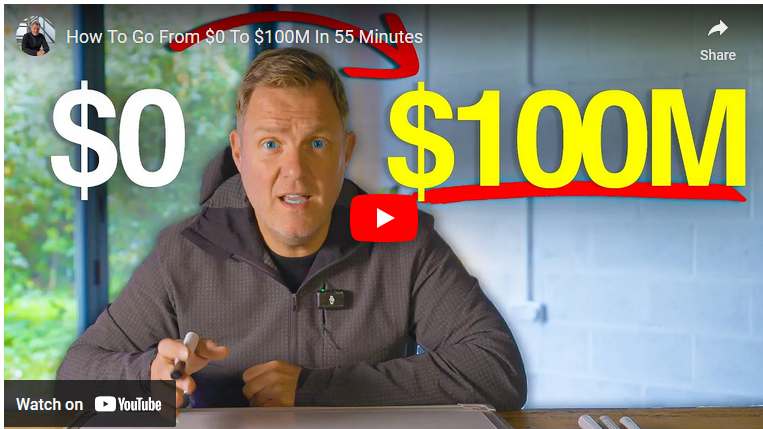SUMMARY:
Rory Sutherland, Vice Chairman of Ogilvy, discusses a wide range of topics including Sonic branding, behavioral economics, and the efficiency of heat pumps with a guest. They delve into the nuances of advertising, the psychological impact of pricing, the placebo effect in medicine, and the potential for combining pharmacological and psychological treatments for better outcomes. The conversation also touches on personal anecdotes, the underutilization of Sonic branding, and the importance of adapting marketing strategies to human behavior rather than theoretical perfection.
ONE-SENTENCE TAKEAWAY:
Rory Sutherland emphasizes the importance of understanding human psychology in marketing, advocating for strategies that cater to human behavior and perceptions rather than rigid theoretical models.
IDEAS:
- Sonic branding is underutilized in marketing.
- Behavioral economics offers insights into consumer behavior.
- The placebo effect can enhance medical treatments.
- Pricing impacts consumer perception beyond its economic value.
- Creativity in advertising requires flexibility beyond rigid processes.
- Heat pumps are an efficient but underpromoted heating solution.
- The psychological impact of pricing is often overlooked by economists.
- Successful marketing campaigns identify and leverage recurring patterns.
- The importance of storytelling in advertising cannot be overstated.
- Technology should be designed with human psychology in mind.
- The digital landscape offers new opportunities for creative marketing.
- Understanding consumer behavior is key to effective marketing strategies.
- The role of scarcity and social proof in consumer decision-making.
- The potential for combining pharmacological and psychological treatments.
- The impact of technological advancements on marketing strategies.
- The importance of adapting marketing to changing consumer behaviors.
- The effectiveness of checklists in creative processes.
- The influence of music and sound in branding and advertising.
- The significance of narrative and context in marketing messages.
- The challenge of scaling up creativity without losing originality.
- The role of personal anecdotes in understanding consumer behavior.
- The need for marketing strategies to adapt to technological changes.
- The potential for behavioral insights to improve health outcomes.
- The importance of considering psychological effects in pricing strategies.
- The benefits of leveraging technology for more effective marketing.
- The impact of cultural references on marketing effectiveness.
INSIGHTS:
- Marketing strategies that leverage human psychology can significantly enhance consumer engagement and brand loyalty.
- Understanding the psychological impact of pricing can lead to more effective pricing strategies that enhance perceived value.
- Combining pharmacological treatments with psychological interventions can maximize health outcomes beyond what either could achieve alone.
- Creativity in advertising requires a balance between following proven patterns and allowing for flexibility and originality in execution.
- Sonic branding is a powerful but often overlooked tool that can create a deep emotional connection between a brand and its consumers.
- The placebo effect’s influence on medical treatment effectiveness highlights the importance of psychological factors in health outcomes.
- Effective marketing strategies must adapt to technological advancements while maintaining a focus on human behavior and preferences.
- Leveraging behavioral economics insights can lead to more effective marketing campaigns by understanding and influencing consumer decision-making processes.
- The success of marketing campaigns often depends on their ability to tell a compelling story that resonates with consumers on an emotional level.
- Adapting marketing strategies to cater to changing consumer behaviors requires a deep understanding of the underlying psychological drivers.
HABITS:
- Regularly reading about behavioral economics to understand consumer behavior better.
- Utilizing checklists to ensure creativity and thoroughness in advertising campaigns.
- Keeping abreast of technological advancements to leverage them in marketing strategies.
- Practicing storytelling in marketing messages to create emotional connections with consumers.
- Analyzing successful marketing campaigns for recurring patterns that can be adapted.
- Incorporating insights from psychology into pricing strategies to enhance perceived value.
- Experimenting with Sonic branding to explore its potential in creating brand loyalty.
- Engaging with personal anecdotes to gain insights into consumer behavior and preferences.
- Continuously adapting marketing strategies based on feedback and changing consumer behaviors.
- Leveraging technology to improve the effectiveness and efficiency of marketing efforts.
- Prioritizing flexibility and originality in the creative process to foster innovation in advertising.
- Staying informed about cultural references that can enhance the relevance and impact of marketing messages.
- Exploring the combination of pharmacological and psychological treatments to improve health outcomes.
- Emphasizing the importance of narrative and context in making marketing messages more relatable and impactful.
ACTIONS PLAN:
-
Start by incorporating behavioral economics principles into your marketing strategy to better understand and influence consumer behavior. Allocate time each week to study behavioral economics theories and case studies to apply these insights effectively.
-
Experiment with Sonic branding elements in your next advertising campaign. Identify unique sounds or musical elements that align with your brand identity and test their impact on brand recognition and emotional connection with your audience.
-
Implement checklists for creative processes within your team. Develop a checklist that includes key considerations for originality, consumer psychology, and technological integration to ensure comprehensive campaign planning.
-
Explore combining pharmacological treatments with psychological interventions in product development or health-related services. Collaborate with experts in both fields to design integrated solutions that maximize outcomes.
-
Leverage storytelling in your marketing messages by dedicating resources to narrative development. Train your team on storytelling techniques and allocate time for brainstorming sessions focused on creating compelling narratives that resonate with your target audience.
-
Regularly review successful marketing campaigns outside your industry for patterns that could be adapted to your context. Organize monthly brainstorming sessions where these insights can be discussed and potential applications explored.
-
Update your pricing strategy by incorporating psychological insights. Conduct market research to understand how consumers perceive value and adjust your pricing models accordingly to enhance perceived value without necessarily lowering prices.
-
Invest in technology that enhances the effectiveness of your marketing efforts. Stay updated on new tools and platforms that can help you reach your audience more effectively and experiment with these technologies in pilot projects.
-
Encourage flexibility and originality in your team’s creative process by creating an environment that fosters innovation. Set aside time for unstructured brainstorming sessions where unconventional ideas are welcomed and explored.
-
Integrate cultural references into your marketing messages to increase relevance and engagement. Keep a pulse on popular culture trends relevant to your target audience and find authentic ways to incorporate these into your campaigns.
-
Consider the potential for behavioral insights to improve health outcomes in product development or service offerings. Engage with behavioral scientists to identify interventions that could complement your offerings.
-
Evaluate the impact of your adapted marketing strategies through consumer feedback and performance metrics. Use this data to continuously refine your approach, focusing on strategies that leverage human psychology for better engagement.
CHECKLIST:
| Action Item | Completed |
|---|---|
| Incorporate behavioral economics principles | [ ] |
| Experiment with Sonic branding | [ ] |
| Implement checklists for creative processes | [ ] |
| Combine pharmacological treatments with psychological interventions | [ ] |
| Leverage storytelling in marketing messages | [ ] |
| Review successful campaigns for adaptable patterns | [ ] |
| Update pricing strategy with psychological insights | [ ] |
| Invest in technology for marketing effectiveness | [ ] |
| Encourage flexibility and originality in creativity | [ ] |
| Integrate cultural references into marketing | [ ] |
| Explore behavioral insights for health outcomes | [ ] |
| Evaluate impact of adapted strategies | [ ] |
QUOTES:
- "There are no schedules, only checklists."
- "Price is a number to economists, but a feeling to consumers."
- "Creativity requires flexibility beyond rigid processes."
- "Sonic branding creates a deep emotional connection."
- "The placebo effect enhances medical treatments."
- "Understanding consumer behavior is key to effective marketing."
- "Storytelling creates emotional connections with consumers."
- "Technology should be designed with human psychology in mind."
- "Adapting marketing strategies to human behavior leads to success."
- "The psychological impact of pricing is often overlooked."
- "Leveraging technology improves marketing effectiveness."
- "Successful marketing campaigns identify recurring patterns."
- "Behavioral economics offers insights into consumer behavior."
- "Heat pumps are an efficient but underpromoted solution."
- "The importance of narrative in marketing cannot be overstated."
- "Flexibility and originality foster innovation in advertising."
REFERENCES:
- "The Master and His Emissary" by Iain McGilchrist
- "Influence" by Robert Cialdini
- Andy Clark’s "The Experience Machine"
- Herman Von Helmholtz’s theories on perception
- William James’s contributions to psychology
- Netflix’s distinctive Sonic branding
- HBO’s unique sound identity
- ITV X’s Sonic branding efforts
FACTS:
- Sonic branding is significantly underutilized in advertising.
- Behavioral economics provides valuable insights into consumer decisions.
- The placebo effect can significantly enhance treatment outcomes.
- Pricing conveys meaning beyond its economic value.
- Creativity in advertising benefits from flexibility rather than rigid processes.
- Heat pumps offer an efficient alternative for heating homes.
- Successful marketing campaigns often follow identifiable patterns.
- Storytelling is a powerful tool in creating emotional connections with consumers.
- Technology plays a crucial role in modern marketing strategies.
- Consumer behavior is deeply influenced by psychological factors.
RECOMMENDATIONS:
- Study behavioral economics to understand consumer behavior better.
- Experiment with Sonic branding in advertising campaigns.
- Utilize checklists to ensure thoroughness in creative processes.
- Combine pharmacological treatments with psychological interventions for better health outcomes.
- Leverage storytelling in marketing messages for deeper emotional connections.
- Analyze successful marketing campaigns for adaptable patterns.
- Incorporate psychological insights into pricing strategies.
- Invest in technology that enhances marketing effectiveness.
- Foster an environment that encourages creativity and originality.
- Integrate cultural references into marketing messages for increased relevance.
- Explore the use of behavioral insights to improve health outcomes through products or services.
- Continuously evaluate the impact of adapted marketing strategies through consumer feedback and performance metrics.


